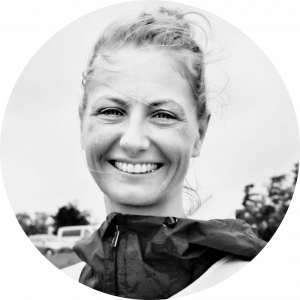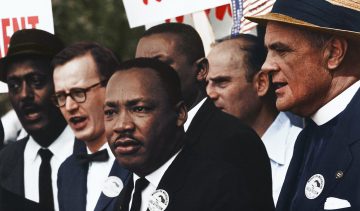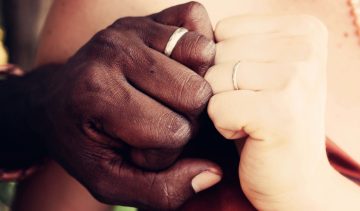I want to be me. My whole self. I fought for it, and worked even harder. But, when you are finally at a place where you can be yourself on a regular basis, the opinions and images others have of you are still alive and kicking. Should you care? Yes and no.
If there is one process where you are dependent on the opinions of others, then it is definitely the job application process. I’m in the midst of it right now. My friends know that I am searching and want to help me. Recently, one of them tipped me about a great opportunity. For a company specialized in helping youngsters with problems, they were looking for a life coach. A perfect match for me! She knew the owner and said she would call him to put in a good word for me. Unfortunately that did not work out the way she thought and it ended up to be a tough confrontation with stigma and images others have of the world. She told him, in all of her enthusiasm and belief in me, that I have Borderline. Because she thought it to be an asset for this job, which is true, in my case. But the man on the other side of the line does not know me, and called me a risk. End of conversation, end of job opportunity. That obviously sucks. Where did this go south?
The image of Borderline
Well, it went south with an image of, and opinions about Borderline. This man works in mental healthcare. He is probably familiar with this diagnosis and knows certain characteristics of it. He also knows that some of those characteristics could prove to be a risk for him, as a business owner. But, he does not know me. My friend does. She knows that I am way more than that diagnosis and its presumed characteristics. That I turned something that is seen as a weakness into a strength by working hard and getting to know myself. That I am functioning very well and that I have a lot to offer. But, by mentioning Borderline, she created a link to an image of it, and with that all other things became void. It may be a limited image, a stigma, but it does, in the end, determine the outcome.
Programmed beings
We are very preprogrammed beings. When you think about the fact that we consciously process only 10 percent of what our senses observe, you can ask yourself what happens to the other 90 percent. The lot of what we observe gets processed by our brains, outside of our conscious mind. Those brains are masters in processing information at light speed, giving us the chance to consciously react to what we observe, or not. This is, amongst other things, done by categorizing all this information. That’s a very necessary process, because there is so much of it, and reactions are to be expected in hundreds of a second, we could not function otherwise. Our brains are our computer, there is a lot of processing going on in the background so you can play your game, write your book or do your work.
How we view the world
Unfortunately this helpful tool has it counter effects. Our brains organize the world only in categories they know; that means we see the world as we are. We are looking at the world with only the things we’ve learned, seen and experienced. As we get older, no new categories will be made, everything will be processed and matched to categories we know. It can result you being shoved into a limited category, a wrong category, or, even worse, no category matches you. Because, how does your brain react to something they do not know? That feels like a risk. Anyway, you will never, in the beginning, be seen as a complete person. You will be categorized on the basis of some of your characteristics or appearance. And that is something to keep in mind. Its strategic to take that into account.
How to be strategic?
Being strategic can have a negative taste, because you are consciously choosing what you show others, or not, choosing to play a certain part, not being totally you. I find this difficult at times, and sometimes also feel resistance, to be strategic. We all preach a lot that we should be able to be ourselves, and I am sorry that I cannot just express some things. That there is prejudice. But without boxes we are lost. The Borderline diagnosis is also a box, and, by no means, complete. There are at least 380 ways to experience Borderline, and these are certainly not covered by a list of 10 characteristics. But, I use the Borderline box too. In the beginning to help myself recover and now to support my mission to create more awareness for mental wellbeing. I know, for a fact, that I do sometimes cut corners there too.
Have a plan
Strategic thinking is having a plan, to take your environment and the situation into account. When you understand how we, as humans, ‘work’, how our world view comes about, it becomes easier to create opportunities in which you can be yourself. And as with a lot of things in this world; It’s about who is behind the controls and what motives they have.
This means you should not bluff your way through life or only think about what others expect. You are not yourself when you do. Your job is to know who you are, what your qualities are, what you need and what you can bring to the world. It’s important to know yourself. And, that you take responsibility. In searching for a job that means that you try to really honestly estimate if you can do the job, if you are qualified. Subsequently you can focus on the best way to ‘get into the door’, that’s having a plan.
This failed ‘job application’ was an important reminder that there is still a lot of stigma about mental health issues. And, again it reminded me of how we need to focus on more information, and not on fighting already existing images. More information broadens people’s views. Just like my friend saw me as way more than a diagnosis. Familiarity with, makes things less scary, feels less of a risk, and increases chance of different reactions.











